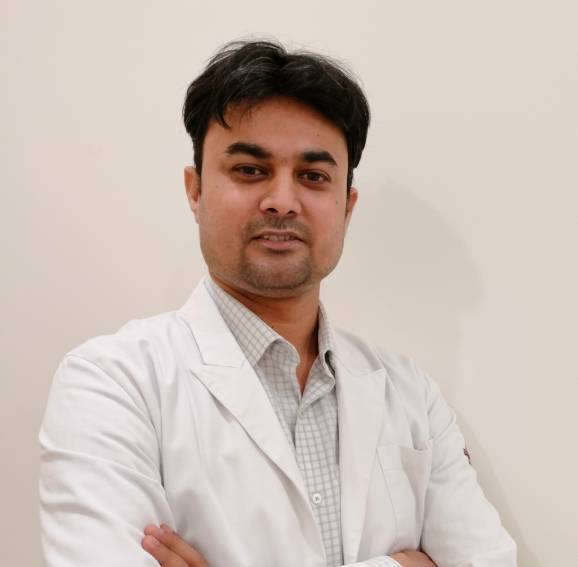Warning Signs of Stroke: A Must-Know for Everyone
In India, brain stroke is the second most common cause of disease-related mortality after coronary artery disease. According to the Indian Stroke Association, more than 18 lakh people in India suffered a brain stroke. According to Lancet Global Health, more than seven percent of the total deaths in India were due to brain stroke in 2019. The same study suggested that India observed a more than 100 percent rise in stroke cases between the years 1996 to 2019. But the more concerning part is the lack of awareness of brain stroke. According to a survey less than twenty-five percent’s Indians are aware of the symptoms of brain stroke. If we talk about the treatment options for brain stroke, the awareness level decreases to just ten percent. The survey involved 12 cities with a sample of four thousand seven hundred and forty-two respondents. The awareness level is significantly low in tier-two cities and lower socio-economic groups.
Before discussing the signs of stroke, first, let us try to understand what stroke is.
A stroke, often called a brain attack, happens when something obstructs the blood supply to the brain or when there is a rupture of a brain blood vessel. In either case, the affected part of the brain becomes damaged. A stroke may cause permanent brain damage, a long-term disability, or even death in some cases.
What happens with the brain during a stroke attack?
The brain is one of the most vital organs in our body. It controls our movements and is a storehouse of our long and short-term memories. Whatever we think, feel, and the language we speak is because of our brains.
Our brain needs a continuous oxygen supply to perform all these vital functions. The delivery person for this oxygen is our arteries and the blood inside them. If something obstructs this blood supply, the brain cells begin to die due to a lack of oxygen. This phenomenon is what we call a stroke.
Why is it important to know the warning signs of stroke?
A stroke or brain death can affect any part of the body or the entire body. Prompt action can make a significant for someone having a stroke. There is substantial clinical evidence validating that correct treatment within golden hour of stroke can prevent long-term disability. It is a normal human tendency to show reluctance in calling emergency services, doubting whether the patient has a stroke or not. But by calling the help immediately, you can increase the chances of a patient's recovery from the attack. According to American Heart Association, people who receive blood clot-dissolving therapy within 4.5 hours may recover without major disability.
Let's discuss some of the classical symptoms of stroke in detail.
Difficulty speaking or comprehending language
A brain attack can affect a person's ability to speak and understand language. During a stroke, people may find it difficult to explain things or find the right words. They may have slurred or sloppy voice and may not be able to understand what you are saying.
Paralysis or weakness of limbs
People with stroke may experience weakening or paralysis of limbs. There may be one-sided facial drooping. This drooping effect becomes prominent when you ask a person to smile. He may be unable to form a smile on one side of his face. You can also ask him to raise both arms. The person may experience difficulty keeping one arm steady due to numbness, weakness, or paralysis.
One should note that the affected limb may not go completely numb. Instead, the person may complain of needles and a tingling sensation.
Difficulty walking
Some people with stroke may not be able to walk or stand as they used to. Maintaining the balance may become a tedious task for them. All this happens because of poor coordination or weakness in the limbs.
Vision problems
A person experiencing a stroke may report vision problems. It may be blurry vision, double vision, or complete vision loss in eyes.
Intense headache
If your loved one experiences headaches with other stroke symptoms, seek medical advice immediately.
Memorize this Mantra: Act FAST.
A stroke can come suddenly without any disability. The most important aspect of stroke management is early treatment.
FAST is an acronym that can help people understand stroke symptoms so they can immediately take the concerned to stroke ready hospital.
FAST Sign:
F for face drooping: If you notice any uneven smile or a facial droop on a patient's face, it can be due to a stroke.
A for arm weakness: If a person is not able to raise his arm or if the arm drops down suddenly or if the arm is not steady, it can be a warning sign of stroke.
S for speech difficulty: Slurred speech or speech difficulty can be because by a stroke.
T for timely action: If you see these symptoms in a person, rush to stroke ready hospital.
The Conclusion:
Most of the symptoms of stroke can confuse you with other medical conditions. But the classical feature of all these symptoms is their sudden onset. A stroke occurs without giving any prior warning. Your loved one may be laughing or talking one moment and unable to stand, walk or talk the next moment. Remembering the signs of stroke is the most critical element in ensuring the recovery of a stroke patient. The earlier you spot the symptoms, the faster you call medical help, resulting in a better prognosis for the condition.
So be fast and act FAST.

